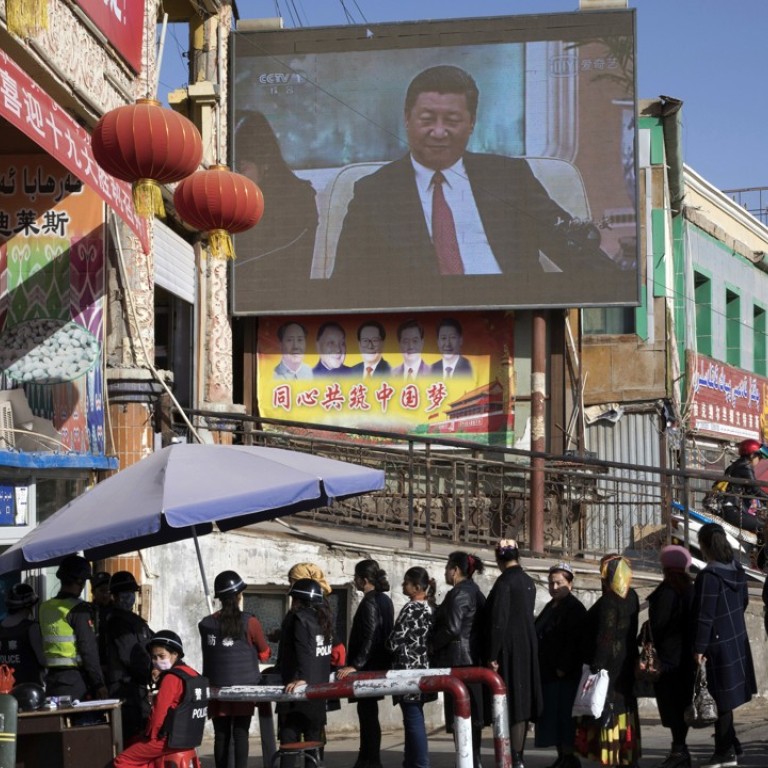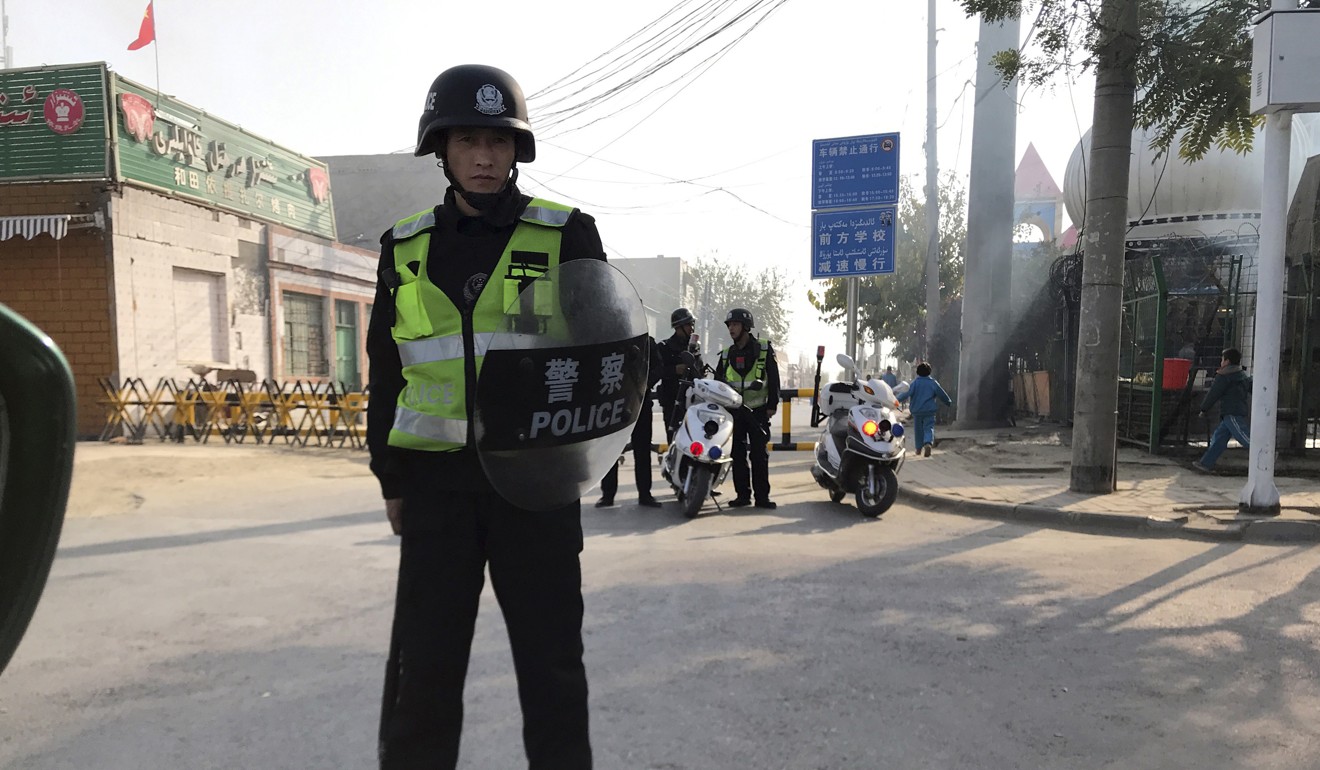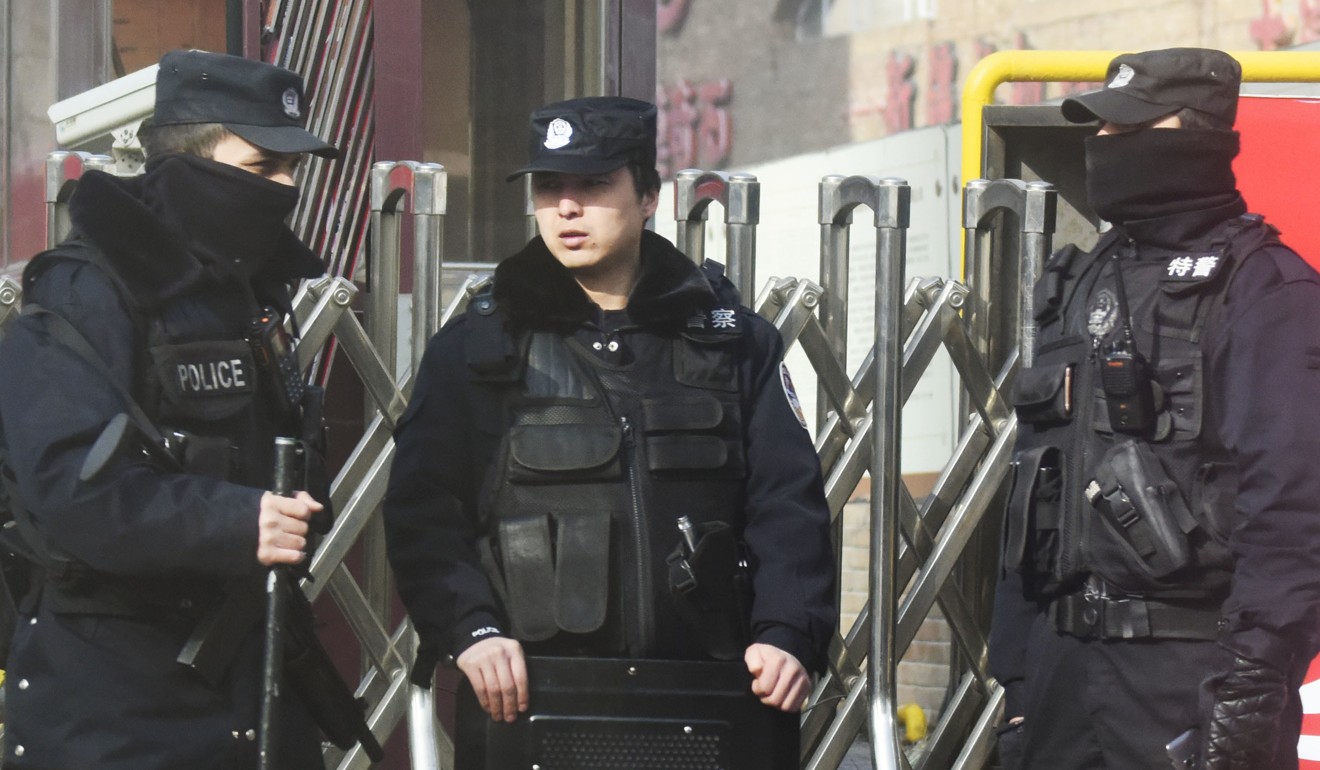
How China defines religious extremism and how it justifies Xinjiang re-education camps for Muslims
While the law says officials must distinguish between everyday religious activity and extremism, its definition of the latter means even people who damage banknotes or reject mass media can be targeted
Xinjiang in the far west of China this week enacted a legislative amendment to recognise its controversial “re-education camps”.
A United Nations committee said it had received “credible reports” that the camps, referred to as “vocational training centres” in the new rules, are holding up to a million ethnic minority Uygurs and other Muslims and subjecting them to enforced political indoctrination.
Chinese officials denied the arbitrary detention of citizens, saying that they only sent those who committed minor criminal misdemeanours to receive vocational training.
The move is seen as a step by the government to retrospectively legitimise the internment camps. Here is the story behind the camps.
Malaysia defies China by freeing Uygur detainees
What is the legislation about?
Xinjiang first introduced its “Regulation on Anti-Extremism” in April 2017 to ban a wide range of “extremist behaviour” following a string of terrorist attacks.
The revision, promulgated with immediate effect on October 9, focused on recognising the use of training centres as part of the Xinjiang authorities’ efforts to eliminate “religious extremism”.
County-level governments are allowed to set up the education training centres.
The regulations are so far confined to the Xinjiang region and there is no nationwide law.
It also legalised fully fledged efforts across Xinjiang to curb extremism, although the law also requires officials to differentiate between “extremism” and ethnic traditions and normal religious activities.
China changes law to recognise ‘re-education camps’ in Xinjiang
What is deemed “extremist”?
In practice a broad range of activities are deemed extremist.
Besides targeting those who “promote extremism” the regulations target people who:
– enforce compulsory religious activities over others,
– intervene in other people’s marriages and burials,
– intervene in social interactions between peoples of different ethnicities and religious beliefs,
– reject the consumption of mass media and entertainment programmes,
– practice a loose halal concept in everyday life “by extending the concept of halal to areas other than halal diet”,
– enforce the wearing of a veil or “abnormal” beards as a sign of religious dedication,
– prevent children from receiving national education,
– intimidate or persuade others to refuse to participate in national policy – which can range from refusing welfare entitlements to shirking civic responsibilities – destroy resident ID cards or damage Chinese banknotes,
– sabotage public or other private property,
– publish, distribute or possess extremist media content,
– violate birth control policies.

What is being done in these re-education centres?
For the first time, it was made clear that “trainees” in these vocational training centres would be offered occupational skills, language, cultural, ideological, legal and psychological education.
Bekali and other detainees have also described the intense psychological pressure they were placed under and complained of harsh physical punishments such as food and sleep deprivation and beatings.
Xinjiang ‘extremists’ encouraged by West, claims Chinese paper as US lawmakers demand sanctions
What else does the amendment tell us?
Adrian Zenz, an expert on Xinjiang and Uygur issues from the European School of Culture and Theology in Germany, said the legislative amendment introduced a new reference to a dedicated government department.
“The amendments speak of a ‘re-education management department’ in clause 21 which could be a relatively new institution,” he said.
He said the regulations tasked the department with regulating and standardising the re-education programme in accordance with the law, which suggested the way there may previously been inconsistencies in the way the policy was applied across the region.

Will it make Xinjiang safer …
The Chinese foreign ministry has defended Beijing’s policies in Xinjiang by saying they “aim to safeguard the social stability and security of Xinjiang and are supported by the people”.
Li Lifan, a central Asian expert from Shanghai Academy of Social Sciences, said the amendment provided timely legal backing and a clearer definition of counterterrorism measures as part of a de-radicalisation effort.
Li pointed to the threat from Chinese citizens who had fought for Islamic State in Syria and the risk that a number of politically sensitive anniversaries next year – including the 70th anniversary of the People’s Republic and the 10th anniversary of ethnic violence in the Xinjiang’s capital Urumqi that killed more than 200 people – would be targeted.
Kazakhstan denies asylum to Xinjiang re-education camp whistle-blower
… or give more grounds for concern?
Eva Pils, a professor from King’s College London who specialises in human rights and the law in China, said the amendment made no reference to what methods could be used to “re-educate and train” people.
Although the national Administrative Punishment Law has strict limits stipulating what kinds of punishment can be used and limits the time people can be detained to 15 days, the Xinjiang amendment does not have provisions on how the enforced re-education can be challenged or the length of time detainees can be held.
She said the amendment “completely fails to acknowledge that there are internment camps where people are held coercively against their will”.
“Thus, it creates the appearance that the centres are entirely innocuous and legal,” Pils said.
“If the legislation changes anything, it is that writing these centres into the legislation could enable further institutionalisation of these centres,” she said.
“My another worry is that Xinjiang might work as a trial ground for nationwide legislation in future.”

